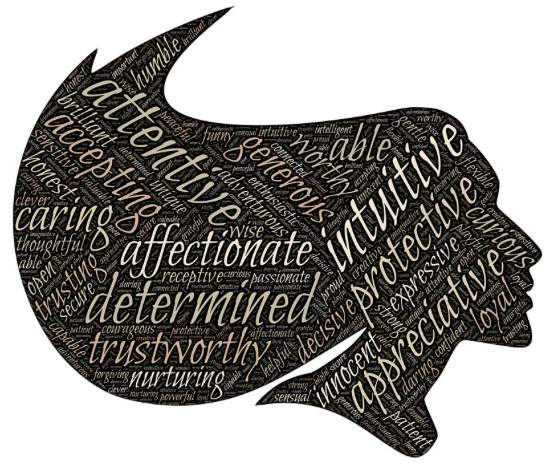MINDFULNESS BLOG/HEATH BLOG/KINDNESS BLOG/TEAMWORK BLOG
The Up Deeds blog
Our blog posts are created by those that share the same call to give back to others.
We give them the full credit they are due, and links so you can benefit from other information they share.

Embodying Integrity in Your Daily Choices
by Up Deeds
Defining Integrity
Integrity is the quality of being honest and having strong moral principles. It involves doing the right thing even when no one is watching, aligning one’s actions with one’s values, and maintaining consistency in words and deeds. Integrity encompasses honesty, accountability, and respect for oneself and others, fostering a sense of trust and loyalty in relationships.
The Impact of Integrity on Our Lives
High Integrity: Individuals with high integrity positively influence their surroundings. They foster trust, build strong relationships, and create environments where ethical behavior is encouraged. This can lead to a supportive community where collaboration and respect are paramount. A person of high integrity is often respected, and their actions inspire others to adopt similar values.
Low Integrity: Conversely, a lack of integrity can lead to skepticism, distrust, and conflict. When individuals are dishonest or inconsistent in their actions, it undermines teamwork and erodes relationships. Low integrity can contribute to a toxic environment, impacting communication and collaboration, and can ultimately hinder personal and professional growth.
Personal and Professional Impact of Good Integrity
Maintaining high integrity can profoundly affect both personal and professional spheres. Personally, individuals with integrity often experience greater self-esteem and peace of mind. They feel a sense of alignment between their values and actions, which fosters emotional well-being.
Professionally, integrity leads to better workplace relationships and a positive reputation. Employers and colleagues are more likely to value and support those who demonstrate ethical behavior, which can open doors to opportunities, promotions, and a more fulfilling career.
The Importance of Integrity
Caring about our level of integrity is crucial because it serves as the bedrock of our character. It influences how others perceive us and establishes the moral foundation for our behaviors and decisions. Organizations and societies thrive when individuals uphold integrity, leading to fairness, trust, and cooperation.
Organizations Known for Integrity
Several organizations in the United States are well-regarded for their commitment to integrity. Examples include:
- The Mayo Clinic: Renowned for its ethical practices and patient-first philosophy.
- The Ritz-Carlton: Known for exceptional customer service driven by strong ethical values.
- Patagonia: Recognized for its commitment to environmental sustainability and ethical business practices.
These organizations embody integrity and demonstrate how ethical values can drive success.
Striving for Integrity and Recognizing Shortcomings
We should strive for integrity because it enhances our credibility and cultivates respect from others. However, we sometimes dismiss the importance of integrity due to social pressures, fear of conflict, or the desire for immediate gains. Recognizing and addressing these tendencies is essential to becoming individuals of high integrity.
The Role of High Integrity Leaders
Having leaders with high integrity is vital. Such leaders inspire trust and loyalty, fostering a positive organizational culture. High-integrity leaders are often more effective at encouraging ethical behavior among their teams, promoting transparency, and navigating challenges with moral clarity.
Steps to Improve Our Level of Integrity
To enhance our integrity, we can take the following steps:
1. Self-Reflection: Regularly evaluate our values and actions to ensure alignment.
2. Accountability: Seek feedback from peers and mentors and hold ourselves accountable for our actions.
3. Set Clear Principles: Establish clear ethical principles and communicate them to those around us.
4. Practice Transparency: Be open and honest in our communications and decision-making processes.
Learning and Developing Integrity
Several resources can aid in understanding and enhancing integrity:
- Books:
- "The 7 Habits of Highly Effective People" by Stephen R. Covey
- "Integrity: The Courage to Meet the Demands of Reality" by Henry Cloud
- "Dare to Lead" by Brené Brown
- Courses and Workshops: Many organizations offer ethics training and leadership development programs focusing on integrity.
- Mentorship: Engaging with mentors who exemplify integrity can provide guidance and inspire ethical growth.
Cultivating More Integrity
Learning to cultivate integrity involves a commitment to growth and a willingness to face difficult truths about ourselves. By surrounding ourselves with individuals of high integrity, engaging in continuous learning, and actively practicing ethical decision-making, we can develop a deeper understanding of integrity and embody those values in our lives.
In conclusion, integrity is a cornerstone of effective relationships and successful communities. By prioritizing integrity in our lives, we not only enhance our own well-being but also contribute positively to the world around us.
In the United States, several role models are often regarded for their high integrity, morals, and ethics. Here are a few notable examples:
Role Models of Integrity in the United States
1. Martin Luther King Jr.: A leader in the civil rights movement, King exemplified integrity through his commitment to non-violence and equality. His moral courage in advocating for justice and his ability to inspire others through love and compassion have left a lasting impact on American society.
2. Abraham Lincoln: Known for his honesty and integrity, Lincoln led the nation through the Civil War while working to abolish slavery. His deep commitment to the principles of democracy and human rights continues to inspire leaders and citizens alike.
3. Ruth Bader Ginsburg: The late Supreme Court Justice was renowned for her steadfast commitment to justice and equality. Ginsburg's principled approach to law and her relentless advocacy for gender equality have made her an enduring symbol of integrity in the legal field.
4. Mahatma Gandhi (inspired figures): Though not American, many U.S. leaders and citizens have drawn inspiration from Gandhi's principles of non-violence and integrity. Figures like Cesar Chavez adopted similar values in their own movements for social justice and workers' rights.
5. Malala Yousafzai: An advocate for girls' education, Malala's courage to speak out despite facing life-threatening opposition has established her as a role model for integrity and moral fortitude. Her unwavering commitment to her cause illustrates the power of standing for what is right.
6. Jimmy Carter: The 39th President of the United States is known for his ethical leadership and post-presidency humanitarian work. Carter's dedication to peace, democracy, and volunteerism reflects a profound commitment to integrity and service.
7. Fred Rogers: Known for his television show "Mister Rogers' Neighborhood," Fred Rogers is celebrated for his kindness, compassion, and emphasis on the importance of emotional well-being. His messages about integrity and treating others with respect have had a meaningful influence on American culture.
These individuals exemplify the qualities of integrity, ethics, and moral courage, serving as inspirations in their respective domains. Their legacies remind us of the importance of standing firm in our values and the positive impact that integrity can have in creating a better society.
Examples of how having good integrity can benefit you
1. Building Trust and Strong Relationships: Having integrity fosters trust with colleagues, friends, and family. In a work environment, being known as a person of integrity means that others can rely on you to be honest and fair. This can lead to stronger collaborations and partnerships, as people are more willing to work with someone whom they trust. For example, a project manager who consistently communicates transparently and keeps promises is likely to earn the respect and loyalty of their team, leading to more efficient teamwork and successful project outcomes.
2. Enhancing Reputation and Career Opportunities: Individuals with high integrity are often viewed as leaders and role models within their organizations. This positive reputation can open doors to promotions, leadership roles, and exciting career opportunities. For instance, a professional who stands by their ethical principles during challenging times—such as resisting pressure to compromise standards—will be recognized for their reliability and moral courage. This not only enhances their career prospects but also positions them as a sought-after mentor for others in the organization.
3. Personal Fulfillment and Confidence: Maintaining integrity contributes to a person's self-esteem and peace of mind. When you act in alignment with your values, you experience a sense of fulfillment and confidence. This inner strength can resonate in both personal and professional spheres, helping you navigate challenges with clarity and purpose. For example, someone who speaks up against unethical practices, even if it’s uncomfortable, can feel a deep sense of satisfaction knowing they acted in accordance with their values, which encourages further ethical behavior in their career.
Chec out the book shown below. Click on the image and search "integrity".
Would you like to receive a monthly uplifting and helpful blog?
That's great to hear, just click the button to sign up.

